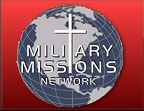One of the projects I’m working on is developing a “theology of catastrophe” and guidelines for ministry in those conditions.
> My research tells me that it’s not a question of if a WMD will hit US soil but when.
> My intuition tells me it will be a natural consequence — not a judgment, and that it will be an opportunity for the church.
> My heart tells me that leaders in the church could be doing a better job of preparing the church-at-large for ministry under conditions like what Jeremiah faced.
> My mind’s eye sees a picture of Satan at God’s throne accusing American Christians like the way that Satan accused Job. “They worship you because they have it so easy!” Satan accuses.
In that mind’s-eye image the book of Job is a prophetic parable for the American church.
I also think American church leaders need to be careful not to be accusatory like Job’s friends. By faith and in Christ, the church is righteous before God no matter how things may look through the eyes of observers (like Job’s friends) at ground level.
Of course, like with Job (and also with Jesus), righteousness draws rather than prevents tribulation. Jesus said about the approaching crucifixion, “Now is the Son of Man glorified and God is glorified in him” (John 13:31). Jesus’ brother told his scattered audience to face tribulation with joy (James 1:2).
The world and Satan hate us, not only because they hated Jesus (John 15:18) but also because of the grace that we have received. That is a lesson from the older brother in the parable of the prodigal son. He became bitter over the grace his father showed to his younger brother.
Our righteousness in Christ could be a lightning rod for coming affliction. Can we face it with hope and expectation?








 http://www.faithandwar.org
http://www.faithandwar.org Mark Durie's Blog
Mark Durie's Blog Military Missions Network
Military Missions Network The Christian Fighter Pilot
The Christian Fighter Pilot The Navy Christian
The Navy Christian